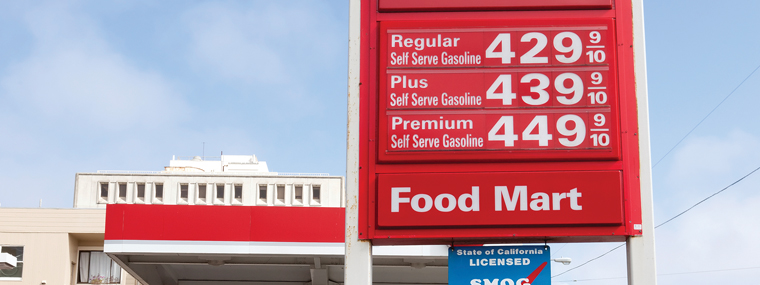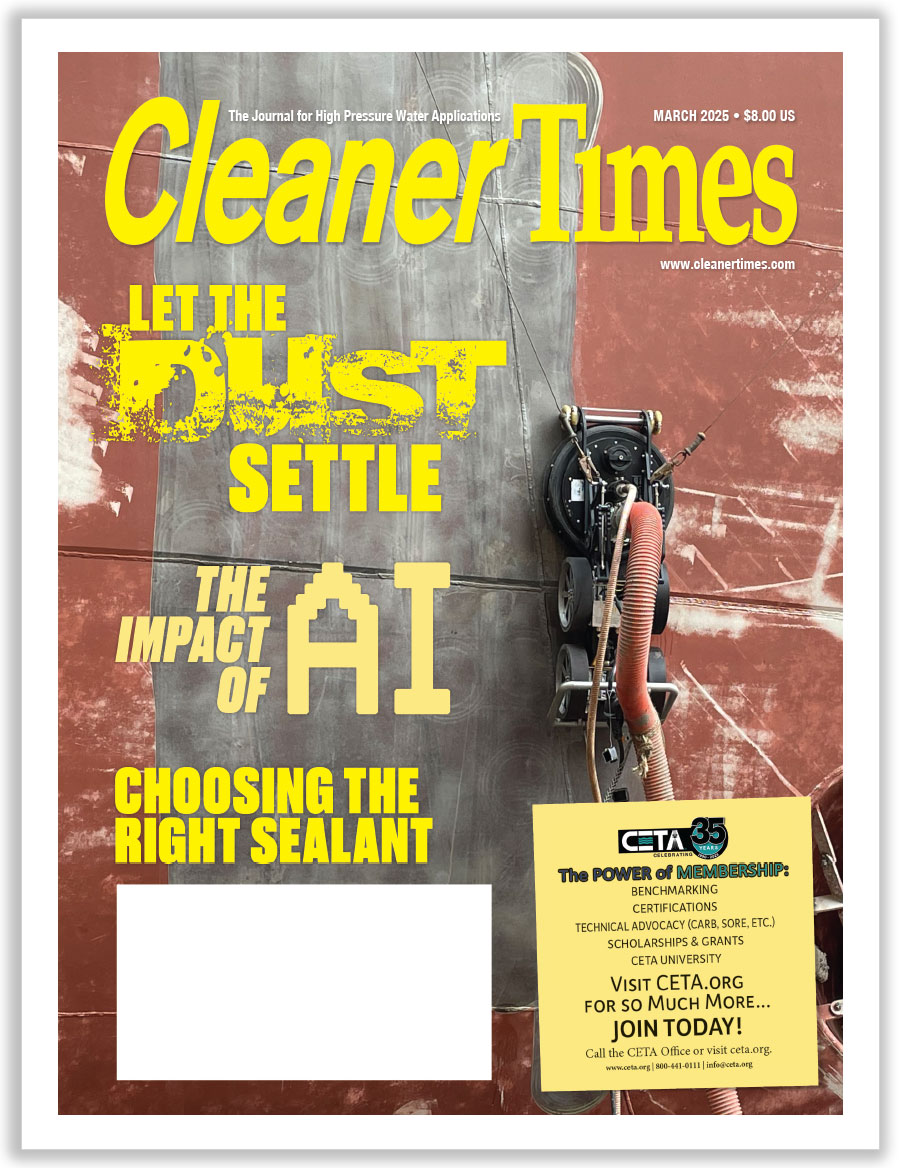
Pressure Washer’s Guidebook: Gas Stations/Convenience Stores
Contributor: Tim Moore, Owner, Pressure Clean USA, Daytona Beach, FL / Published May 2016

Editor’s Note: This entry contains some information from the chapter “Flat Surface Cleaning,” which was published in the 2002 Power Washer’s Guidebook. The chapter was written by Rick Carey, ARK Pressure Washing Company.
Geographical Considerations
There are opportunities in every part of the country.
Typical Job
Gas stations, including those attached to convenience stores, are very hard to keep clean. They have heavy traffic and most owners cannot budget monthly or quarterly cleanings that would range from $250 to $500. Owners are forced to take a do-it-yourself approach or to go without for extended periods of time. Residue builds.
Corporate-owned gas stations are more likely to keep a clean appearance and normally schedule cleanings right before a district manager is scheduled to visit, so there is an opportunity for short-notice work.
Gas stations present a few challenges: the heavy traffic—cars driving over your hoses and customers walking through the work area; the need to put up ‘CAUTION’ signage and cone the cleaning area—and still that does not always do the job in keeping away foot traffic; the need to work at night or after hours; the travel distance to the jobsite—lots of traveling, typically at night; and the need to cover gas pumps if also cleaning the canopy (the gas pump roof).
Depending on the gas station, you will need between one and eight hours to complete the job. Expect a lot of gum. One of the main things we run into at gas stations and convenience stores is a lot of gum residue. Steam or hot water is required to get the gum removed without doing damage to the concrete surface. Cleaning an asphalt surface should begin only when the contractor has complete knowledge of the type of asphalt.
Oil stains may be everywhere. Hot water is required for this job, too. Also, pre-treat oil stains with heavy duty degreaser or sodium hydroxide. Check your local laws regarding runoff. Know them and follow them.
Techniques That Work Best
Locate the water source. And, let the staff know you are there. (Often staff will have not been told about the scheduled cleaning by upper management).
Pick up and remove the trash from the vehicular area or the sidewalk around the store. Use the customer’s disposal receptacle, if possible.
Put out the cones and clean in an area where there is less traffic and get everything running. Remove ashtrays and garbage cans from the cleaning areas. (These are good for blocking off parking spots as needed.) Once the traffic dies down, try to get the storefront (entrance) completed. Have the area coned off and have employees ready to stop customers from walking through any chemicals.
Strive to clean at night and/or on weekdays only. There are fewer vehicles and people then. And at warmer latitudes and in summer, cleaning at night is cooler and reduces environmental issues (e.g., generation of volatile chemicals that are restricted as pollutants).
Generally, hot water used in the range of 2500 psi removes most residue and even gum from substrate. If using a broad surface cleaner, have a wand available to tackle tough spots.
Exceptions
A 24-hour gas station requires considerable effort to manage the traffic and cleaning job simultaneously. Plan the job well.
Know the type of asphalt, if substrate is asphalt. Make certain the wash that removes residue will not degrade the asphalt.
A wand allows for concentrated action on tough spots, but use of a wand can leave a striped pattern if the operator is not expert. Broad surface tools or flat-surface, high-pressure rotary cleaners get around this problem, and they may also lessen fatigue of the equipment operator. On the exterior of stores and around curbs, brooms may be the best choice.
Equipment and Supplies
Hot water is the most critical element of gas station work.
A degreaser or solvent may be needed for spot cleaning. Choose one that is biodegradable and approved for use in the jurisdiction where the work is being done. Work closely with environmental regulators when working on choice of chemicals. [For instance, wastewater collection and proper discharge of wash water will have to meet all expectations and permitting requirements of the National Pollution Discharge Elimination System (NPDES), which is an outgrowth of the Clean Water Act of 1987.] In some parts of the country, a contractor may need a wastewater recycling system.
The basic list of equipment and supplies includes the pressure washer (conventional with normal accessories) with a chemical injector, a flat-surface cleaner, and wastewater containment tools (vacuum, berms, etc.).
How To Bill
Be flexible, and keep costs down to keep prices down. Don’t take the cheap, low profit margin work because you will need to fix your truck and equipment from all the use. Save your money.
Given the lower profit margins in this segment of the cleaning industry and the challenges listed above, we have focused on easier, more profitable jobs.
Ancillaries
Most of the time customers want their front sidewalk cleaned and the front of the store looking good. Selling such cleaning services makes a good add-on to flat-surface work at gas stations. Conversely, if hired to clean the exterior of a convenience store with gas pumps, sell flat-surface cleaning around pumps as an ancillary.
Try to sell the owner of a gas station or convenience store a regular cleaning contract.
Problem Areas To Avoid
Use chemicals only when necessary. The more chemicals in use, the greater the number of compliance concerns for the contractor.
How To Fix Mistakes
Have a walk-around with the owner’s responsible staff member after completing the cleaning. Get them to sign off on results meeting expectations. If they point to a missed spot, etc., clean it, have them inspect it again, and then get them to sign off.
Tim Moore has been the owner of Pressure Clean USA, LLC since 2006. He is currently expanding the business and recently began offering franchise opportunities in Florida. A 2003 graduate of the University of Central Florida in business administration, he loves family, sports, and the outdoors.





